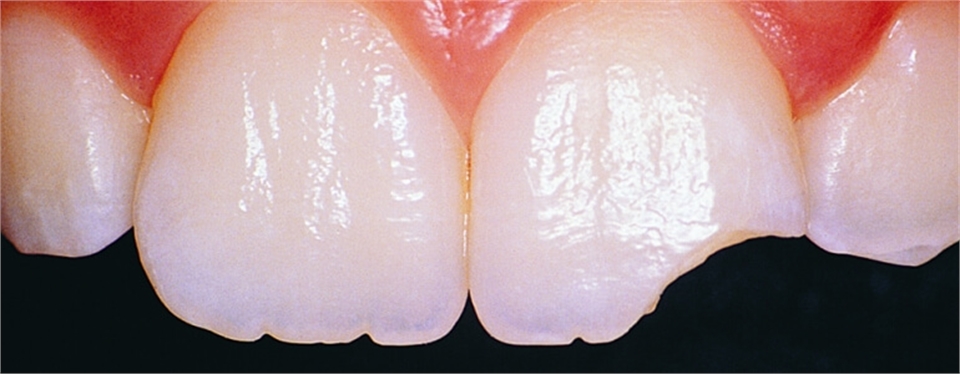What to do if you break a tooth?
Fractured and chipped off teeth are the most common dental emergency situation. You can find our advice here

The hard, outside part of your tooth is the enamel. It is the most mineralized tissue in the human body, but that does not mean it has limitless strength. A blow to the face or biting down on something too hard—especially if the tooth is already compromised by decay—can cause a tooth to fracture, break, or chip.
Chipped teeth are fairly common, and in most cases not serious. In fact, if the break doesn’t hurt, it might not constitute a dental emergency. You should still contact your dentist right away, but he or she might put off treatment for a couple of days. If the break extends beyond the enamel to the soft tissue within, it is a fracture. This is a more serious issue and is considered a dental emergency. Deeper fractures could cause infection, or even full tooth loss. You will likely experience extreme discomfort, and will know right away to contact your dentist.
Steps to follow if you break a tooth
There is no way to treat a chipped or factored tooth at home. But there are things you can do to help ease the pain and reduce your risk of infection. Before you see the dentist:
- Rinse your mouth with warm, salt water to prevent infection and help with the pain
- If there is bleeding, apply pressure with a clean gauze
- Use an icepack to help reduce swelling
- Use sugarless gum, toothpaste, or dental wax to cover the jagged pieces of your tooth
- If you can’t see the dentist right away, use temporary dental cement
- If needed, use over the counter pain medication to mitigate discomfort
- Consume soft foods and liquids so you do not cause more damage
How the dentist repairs broken teeth?
First the dentist will take an x-ray to determine the extent of damage and the best course of action. Treatment often depends on the type of break. Here is what the dentist will likely do for:
- Minor cracks. These rarely need treatment. The dentist might smooth the surface of the tooth to eliminate any rough spots.
- Chips. These are also minor breaks where only the surface of the tooth is damaged. If the chip is small, the dentist might polish the surface. For larger, more noticeable breaks, the dentist may recommend using bonding material or veneers to make your tooth feel and look better.
- A broken cusp. The cusp is the pointed part of the chewing surface on your tooth. If this breaks it does not usually affect the pulp. The dentist can use bonding material to restore the shape of your tooth, but more often he or she will use an onlay or full crown.
- A cracked tooth. This type of break goes from the crown to the nerve, and while the pieces of the tooth remain in place, the fissure will only spread with time and use. In these cases the dentist might use a filling, but often a full crown is the only way to save the tooth.
- A split tooth. In this case the tooth brakes into two separate parts, from crown to root. With molars, that have more than one root, the dentist can perform a root canal and remove roots that are compromised, and top the rest with a crown. If the root cannot be saved, the dentist will extract the entire tooth. For a full restoration you will need a bridge or a dental implant.
- A vertical root fracture. Often these breaks have minimal symptoms, and manifest when the gum or surrounding bone gets infected. Because the crack starts at the root of the tooth, most often the entire tooth is removed.
- A decay-induced break. In this case the tooth gets weakened from the inside out. If it breaks, your dentist will examine the tooth and the extent of decay. Treatment might be a filling, root canal therapy, or extraction if decay is extensive.
If you have a broken tooth, get in for a dental examination as quickly as possible to avoid infection or further damage. Reacting quickly might even save your tooth.
1 Copper Row, London Bridge
London, SE1 2LH
England
United Kingdom
OPEN 24 HOURS A DAY,
7 days a week, 365 days

